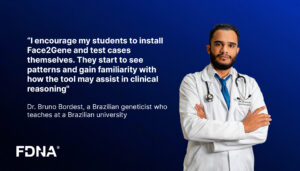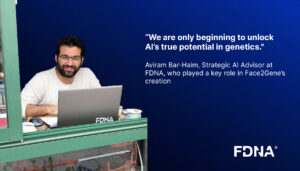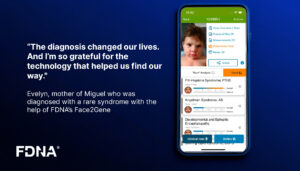June 18, 2019
“Artificial intelligence (AI) may hold the key to diagnosing rare hereditary diseases more efficiently, according to a new study. Approximately 500,000 children are born with a genetic disease every year and obtaining a definitive, accurate diagnosis can be difficult and time-consuming—time that could be spent on treatment and therapy. Scientists from the University of Bonn and the Charité & Universitätsmedizin Berlin developed a neural network that uses portrait photos along with genetic and patient data that can diagnose rare diseases more efficiently and reliably than before. The network, named DeepGestalt, was developed by FDNA, an AI and digital health company. The software was trained with approximately 30,000 portraits.”
The Pharmacy Times article highlights the significant role of AI in modern healthcare, focusing on FDNA’s pioneering Face2Gene technology. Face2Gene utilizes advanced AI algorithms to analyze patients’ facial features, accurately identifying phenotypic markers linked to rare genetic disorders. This innovative decision support tool substantially enhances diagnostic precision and reduces the time needed to reach a diagnosis, which is crucial for early intervention and treatment. The article highlights the transformative impact of AI on personalized medicine and improved patient outcomes.


